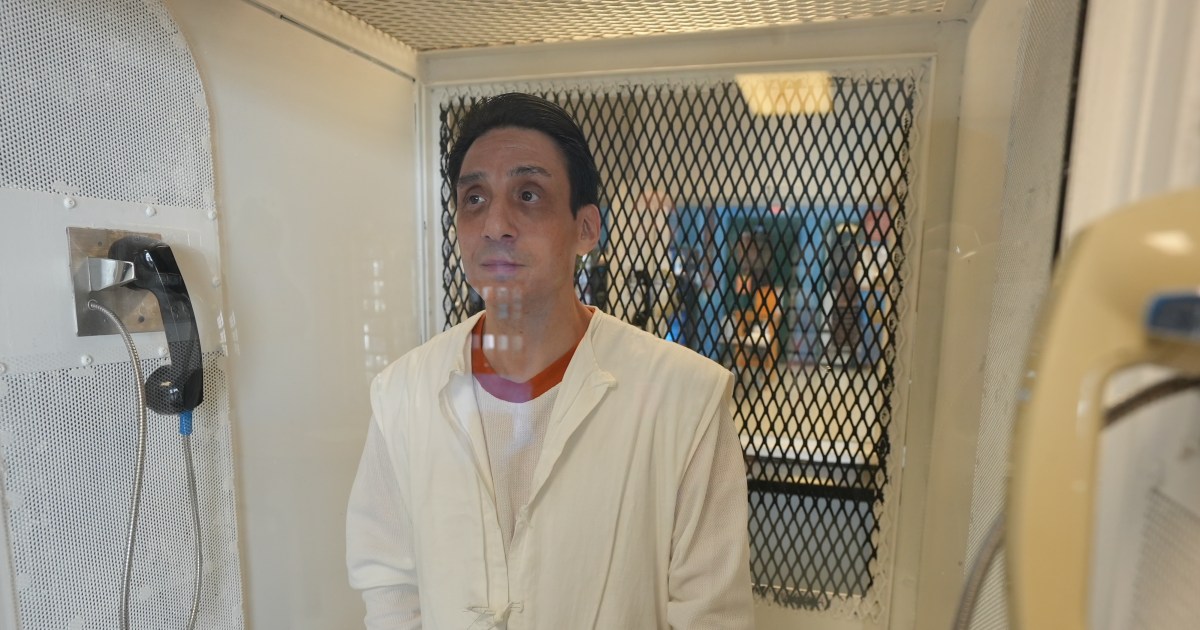The Texas State Board of Pardons and Parole denied the request for clemency promoted by the lawyers of Ivan Cantu, a Hispanic man sentenced to death in October 2001 who, after two postponements (in 2012 and 2023), will be executed this Wednesday, December 28. February if last-minute legal resources do not prevent it.
Cantu's lawyers informed Noticias Telemundo that this Monday night the Pardons Board denied the petition for clemency presented on February 6, which requested the "commutation of the death sentence for a lesser sentence or, alternatively, a postponement of "120 days so that the case can receive the scrutiny it deserves."
A new hearing was thus requested to examine evidence that Cantu's defense claims to have collected.
Cantu's team filed an appeal on February 22 with the federal Court of Appeals for the Fifth Circuit to stay the execution, which was opposed on February 25 by Texas Attorney General Ken Paxton.
If the court denies his appeal, Cantu's lawyers could appeal to the Supreme Court as a last resort.
"From the first day [...] everything was there to investigate the case and prove my innocence. But when I explained it, they didn't believe me," Cantu lamented days ago in an interview with Noticias Telemundo on the prison's death row. Allan B. Polunsky, in West Livingston, Texas, 80 miles north of Houston.
Cantu, a Latino born in Dallas 50 years ago to a Mexican father, was found guilty by a jury of the murder of his cousin, James Mosqueda, 27;
and Amy Kitchen, Mosqueda's fiancee, 22 years old.
Cantu was 28 years old at the time.
Both were shot to death in the bedroom of his home in north Dallas on Nov. 3, 2000, the sentencing determined.
[Ivan Cantu's time is running out in Texas on death row: "I don't want to die," he says, "for a crime I didn't commit"]
"It's just days before they want to put me on a stretcher [to receive the lethal injection] for a crime I didn't commit. We're doing everything we can to present the information to the courts, but it's like they don't care," Cantu said during the interview.
In the years since his conviction, Cantu's attorney, Gena Bunn (who has represented him pro bono for 15 years), private investigators and an independent podcast producer, Matt Duff, say they have found new evidence that they believe discredits Cantu. the main witness of the Prosecutor's Office (Amy Boettcher, Cantu's ex-fiancée) and cast, they say, doubts on his guilt.
Cantu's case has garnered national attention: more than 145,000 people have signed an online petition calling for a stay of his execution, and celebrities such as Kim Kardashian, Martin Sheen and Jane Fonda, and organizations such as Amnesty International have also advocated for his execution to be reviewed. sentence.
[A Texas judge freezes the execution of Ivan Cantu after new evidence is presented]
"There are doubts about his legal representation at trial, the testimony of the state's main witness, and the evidence. We have seen that several people on the jury have come out saying that they also have doubts about whether he is really guilty or not in the case," Mary Kapron, Amnesty International researcher in the United States, stated in an interview with Noticias Telemundo.
In April 2023, a last-minute appeal citing testimony questioned by the defense led Collin County District Judge Benjamin Smith to pause the execution with only seven days left until the execution.
But the Texas Court of Criminal Appeals rejected a request for an evidentiary hearing four months later and a new date was set for the execution, which is February 28.
Since the Texas Board of Pardons and Paroles did not accept his request for clemency, Cantu's fate depends on the appeals filed by his team, a decision by the Supreme Court or whether the governor, Republican Greg Abbott, decides in the last moment to stop the execution.
Noticias Telemundo contacted the Collin County Prosecutor's Office about the case and a spokesperson responded, via email, that its policy is "not to comment on any criminal case pending in court."
The Dallas Police Department also did not comment and the Pardons Board did not respond by the time the memo was published.
[A Latino is released after 25 years in prison after his conviction for a murder in Chicago was annulled: "Justice is very corrupt"]
The families of James Mosqueda and Amy Kitchen declined to comment on the case at the request of Noticias Telemundo, but on a Facebook page the Kitchen family said on February 2: “Let's hope that there is finally justice for Amy and James and that the execution is carried out.”
Texas is the state with the most executions, 586 since 1976. In 2023, eight inmates were executed.
According to the Death Penalty Information Center, since 1973 at least 196 people accused and sentenced to death have been exonerated in the United States, 16 of them in Texas.
"It's only a matter of time," Cantu told Noticias Telemundo, "if they give me a new trial we will be able to prove my innocence and they will take me home."

